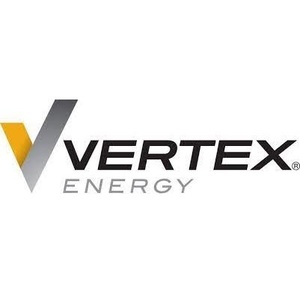Vertex shelves renewable diesel production, returns unit to fossil fuel production

May 9, 2024
BY Erin Voegele
Vertex Energy Inc. on May 9 announced it will cease renewable diesel production at its refinery in Mobile, Alabama, and return the previously converted hydrocracker unit to fossil fuel production later this year.
During a first quarter earnings call, Vertex CEO Benjamin Cowart explained that the company designed the renewable diesel conversion project to allow it to redeploy the facility’s renewable equipment back into conventional production if its strategy required readjustment. Cowart cited current market conditions as the reason Vertex has elected to pause renewables production.
Advertisement
Advertisement
“Due to the significant macroeconomic headwinds for renewables over the past 12 months—many of which we believe will continue to occur over the next 18 months and beyond—we have decided to strategically pause our renewable diesel business and pivot to producing conventional fuels from the hydrocracker unit,” he said.
According to Cowart, Vertex plans to reconfigure the hydrocracker in conjunction with a planned turnaround on the unit. Prior to the reconfiguration, the company plans to process its current inventories renewable feedstock.
Advertisement
Advertisement
James Rhame, chief operating officer at Vertex, said the renewable diesel unit operated smoothly during the first quarter, with renewable throughput volumes averaging approximately 4,090 barrels per day. That level of production equates to approximately 51% capacity utilization.
Vertex in mid-2021 announced an agreement to acquire the Mobile refinery and convert a portion of it to renewable diesel production. The renewable diesel unit began operations in Spring 2023. In June 2023, Vertex announced it had completed the first series of commercial sales transactions of renewable diesel. The following month, the company announced the renewable diesel unit had achieved its phase 1 capacity target of 8,000 barrels per day. The company previously announced plans for a phase 2 expansion that would have expanded production capacity to 14,000 barrels per day by the first quarter of 2025.
Related Stories
The U.S. Energy Information Administration maintained its forecast for 2025 and 2026 biodiesel, renewable diesel and sustainable aviation fuel (SAF) production in its latest Short-Term Energy Outlook, released July 8.
XCF Global Inc. on July 10 shared its strategic plan to invest close to $1 billion in developing a network of SAF production facilities, expanding its U.S. footprint, and advancing its international growth strategy.
U.S. fuel ethanol capacity fell slightly in April, while biodiesel and renewable diesel capacity held steady, according to data released by the U.S. EIA on June 30. Feedstock consumption was down when compared to the previous month.
XCF Global Inc. on July 8 provided a production update on its flagship New Rise Reno facility, underscoring that the plant has successfully produced SAF, renewable diesel, and renewable naphtha during its initial ramp-up.
The USDA’s Risk Management Agency is implementing multiple changes to the Camelina pilot insurance program for the 2026 and succeeding crop years. The changes will expand coverage options and provide greater flexibility for producers.
Upcoming Events










